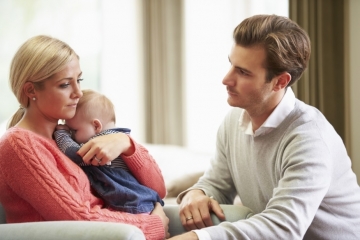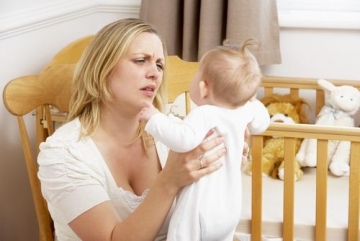Causes such as hormonal changes, fatigue, insomnia, irregular diet can lead to postpartum depression. How to deal with postpartum depression Here are the details ...
Postpartum depression usually occurs in the first few days after birth and can last for a few weeks at most. Hormonal changes can be a cause of depression after childbirth. After birth, estrogen and progesterone levels drop. The mother experiences a similar change during PMS (premenstrual syndrome, premenstrual tension syndrome).
Fatigue, too little sleep, painful nipples give the mother the feeling that she cannot cope with motherhood and the responsibilities that come with it. You may consider mild depression a normal part of labor. The mother should take care of herself by having adequate rest, a balanced diet, moderate exercise, and social support.
Good nutrition helps the body recover. Choosing healthy snacks like fruits and vegetables also helps with weight control. Gentle exercise, such as a walk at a slightly raising heart rate, may be helpful. It helps to open the muscles and the mood can improve as the body starts to feel better.
Strong social support is important during pregnancy and birth. The fatigue and emotional turmoil caused by birth can strain even the best relationships. After birth, your partner may be out of focus as all the energy is focused on looking after the baby. Although you have fulfilled all responsibilities easily in the past, now you may feel inadequate and overwhelmed with new responsibilities. Being patient during this transition helps greatly.
Dyt. Serkan Sıtkı Şahin

